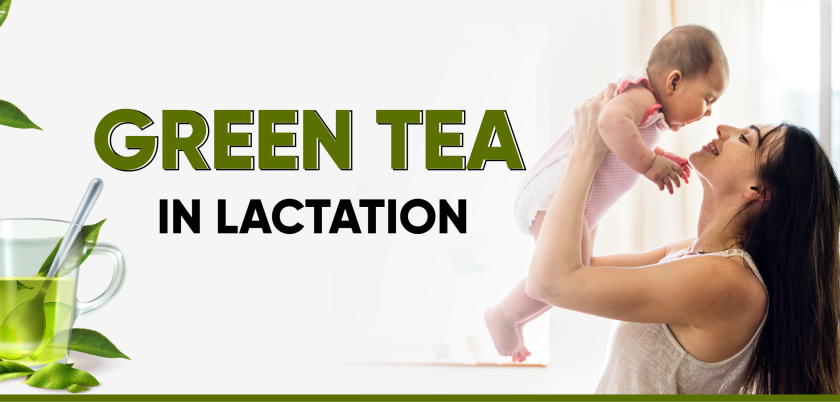
Green tea in lactation
A breastfeeding mother needs to pay a close attention towards her diet because whatever a mother eats or drinks get transferred to the baby through milk and baby depends only on mother's milk for the first six months of his life. Breastfeeding mothers are thus advised to refrain from drinking alcohol and too much caffeinated drinks. So the question arises that is green tea good for a lactating mother
Introduction -
Green tea (Camellia sinensis) is a refreshing and healthy beverage that is a storehouse of nutrients such as vitamin B, folate, magnesium and manganese and antioxidants like polyphenols such as quercetin. It also has caffeine and anti nutritional factors called tannins. Researches have demonstrated the health benefits of green tea such as hypolipidemic, immuno-modulating, anti-carcinogenic and anti mutagenic roles.
Caffeine is the main culprit -
Caffeine is readily absorbed from the gastrointestinal tract and it travels to the saliva and milk of the breastfeeding mother, thereby exposing the new born baby to caffeine. Research shows that the babies exposed to caffeine through breastfeeding have trouble sleeping and are comparatively more irritable and fussy because caffeine is a central stimulant. It gives rise to colic in the feeding baby as well. Recommendation for a lactating mother is to consume no more than 300 mg of caffeine.
Caffeine in green tea and breastfeeding mothers -
Talking about green tea, it has very little amount of caffeine in comparison to coffee and there are some caffeine-free varieties also available. So it's safe to consume one to three cups of green tea a day by a breastfeeding mum without causing harmful effects to the baby i.e. two cups of 237 ml each. American Academy of Paediatrics (AAP) states than not more than one percent of caffeine taken by the mother gets transferred to the baby via breast milk. So It is safe for breast feeding mothers to consume green tea in moderate amounts without causing any side effects to the baby. Whenever taking a caffeinated green tea, keep a caution that you might be consuming caffeine from other sources as well such as coffee, chocolate or soda drinks. So adjust the intake of green tea so that the total caffeine intake doesn't exceed the permissible upper limit. Also try consuming decaf green tea which is that type of green tea that is processed to remove a substantial amount of caffeine, but still it contains 2-5 ml caffeine in it.
Tannins and iron absorption-
Green tea contains anti nutritional factors called tannins which interfere with iron absorption from the gut. If green tea is consumed in excess with meals containing more iron such as green leafy vegetables, it interferes with iron absorption. So to be on safe side, avoid drinking green tea with meals and ensure a gap of three hours between meal and green tea.
Quantity of breast milk and green tea -
Internet claims that green tea reduces breastmilk production and dries it up. But there is no scientific evidence behind this. This is because milk supply depends on the frequency of feeds and sucking reflex. If a mother nurses frequently and keep a note of baby's hunger cues, milk supply is maintained. Trials on rats have rather shown galactagogue action of green tea phenolic extracts which means they are responsible for stimulating mammary glands thereby increasing milk production.
Bottomline is Green tea is a refreshing drink with various health benefits and is safe to be consumed by lactating mothers. But caution is to consume it within safe limits as caffeine of green tea passes to the breast milk. Also keep in mind to have plain green tea without any herbs because effects of additives on lactating mothers is unknown. Also many researches found are on animals such as rats. So more extensive human research is needed for conclusive results.






